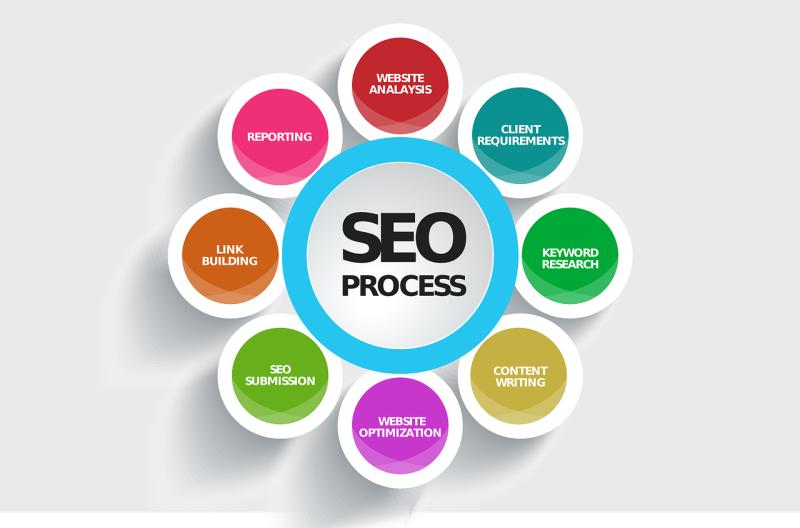5 SEO Tips for Your Website to Get a Better Position in SERP

Over the years, SEO has remained a popular choice for digital marketers for improving the online performance of businesses. But at the same time, SEOs have had their fair share of critics. They fail to understand that SEO is not the digital “lightning in a bottle”; it is not an online tool that will deliver the desired results within your targeted time frame.
The power of SEO can be found in its ability to adapt and evolve and therefore, be manipulated to meet the changing demands of the market. The key to successful SEO is to identify the changes and implement the appropriate strategy.
In this article, I’ll talk about the five quick hacks you can apply to improve SEO.
1. Craft Relevant and Quality Content
Keywords are an effective tool for improving search engine rankings. However, the use of keywords will not guarantee the effectiveness of your blog or article.
Think about this: Google is primarily a tool for keyword research. For your material to be referenced it must be relevant. You can use all the keywords you want but if there is nothing of value in your content, the reader will opt to click out of the web page.
Here are a few pointers to make relevant content that will also be SEO friendly:
● Length: The minimal length for a blog post should be 800 words; the higher the word count the better. Google views longer blog posts as having better opportunities to present relevant information than short posts.
● Keywords: The last thing you should do with keywords is abuse them. Be strategic with their placement. The most important sections to insert keywords are in the title, within the first 200 words, and no more than two to three more times per 800 words.
● Engagement: Remember to write for your audience, not just the search engines. Write compelling content that will encourage your readers to engage or share your post. An effective strategy would be to use the narrative or story-telling approach.
2. Utilize Social Media
Social media has a huge influence on consumers and businesses. Its value in enhancing SEO has been overlooked because people view online marketing strategies as competitive instead of complementary.
The fact of the matter is people who go online visit their social media networks. Of the 7.2 Billion people in the world, three billion are online every day and 1.7 Billion of them are active in social media. Of the 1.7 Billion active social media accounts, nearly a billion are on Facebook.
By integrating social media into your SEO strategy, you will have access to more than half of the people who are on the Internet every day!
Here are a few tips you can consider when using social media for SEO:
● Length: Again, the length of your post will affect SEO. But unlike blog posts, for social media, shorter generates higher “likes” and levels of engagement. For Facebook posts, 140 characters are the ideal length. Twitter is at 120 words.
● Engage: Whether people respond favorably or not to your post, engage with them. Rather than dwell on the negatives, considering they took the time to read what you wrote. And remember to be courteous. Social media is the last place you would want to get into a heated debate.
● Social Share Buttons: On your website’s blog page, make sure there are social media share buttons. If you follow the steps of crafting a relevant blog post, you should allow your readers to share your content.
3. Focus On Quality Links
Link building is a proven effective strategy for improving your SEO. When you reference content to a website that carries the information or validates your data, it enhances the credibility of your content.
It also works for your site when you have a good number of links pointing to your site. It increases your volume of inbound traffic and further enhances your credibility as an authority.
But Google has run its patience with the link-building practices of many website proprietors. For one, Google will penalize websites that purchase links. Second, it will penalize websites that overstuff their pages with links that are not related to content.
With its position on maintaining the integrity of an organic search, it would be best to apply the following link-building strategies:
● Focus only on links that are relevant to your content and the purpose of your website.
● Focus on writing relevant and engaging content.
● Do not abuse guest-blogging strategies; these should remain relevant to your website.
● Continue to utilize social media to drive inbound interest in your blogs.
4. Ensure Mobile Responsiveness
Nowadays, it is no longer enough to have a website. With 60% of online traffic coming from mobile gadgets, particularly smartphones, you must ensure your website is mobile-responsive. You may consistently write great, engaging content but if 60% of the Internet’s online users cannot access it, your efforts would go to waste.
Mobile responsiveness presents unique challenges for website designers. There are design considerations in order to enhance download speed. Websites that are heavy in images will experience slow download times. Statistically, 40% of mobile users abandon the search if the site fails to download after three seconds.
Another issue to consider is your website’s accessibility across different browsers. It is a daunting task but it will pay dividends for your SEO efforts to have your website available across a wide variety of browsers.
A professional website designer will be able to present other design options for you to consider for mobile responsiveness. But this is no option; your website must be mobile-accessible.
5. Conduct a Website Audit
Every business needs to conduct a general audit to assess its overall performance and identify weak areas. The same goes for your website. Here are a few of the areas you should look into:
● Website Coding: Check with your website developer if its present coding is accessible to the search engine crawlers. Elements such as videos, images, and certain text can inhibit the ability of the crawler to index your web page.
● URL: Review your URLs if they are relevant to your target market or audience. Short and concise URLs are better for SEO and also for social media sharing.
● Plug-Ins: If your website has plug-ins that are rarely used this could affect the site loading speed. In addition, it can compromise the security and integrity of your website.
SEO remains a valuable channel for making your website discovered. But just like the Internet itself, the principles of SEO will continually evolve and conform to the demands, demographics, and preferences of the market. When using SEO techniques, you should be open-minded in implementing its strategies and patient when expecting results.
Advertise on APSense
This advertising space is available.
Post Your Ad Here
Post Your Ad Here





Comments